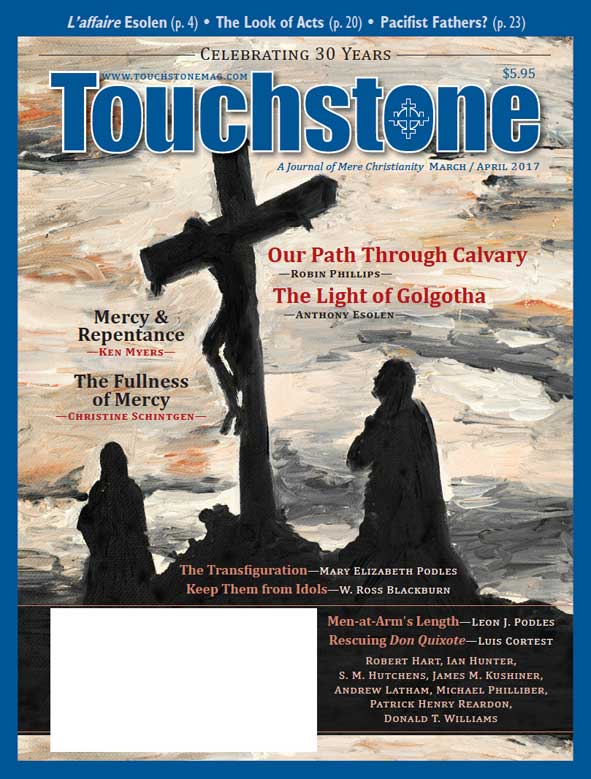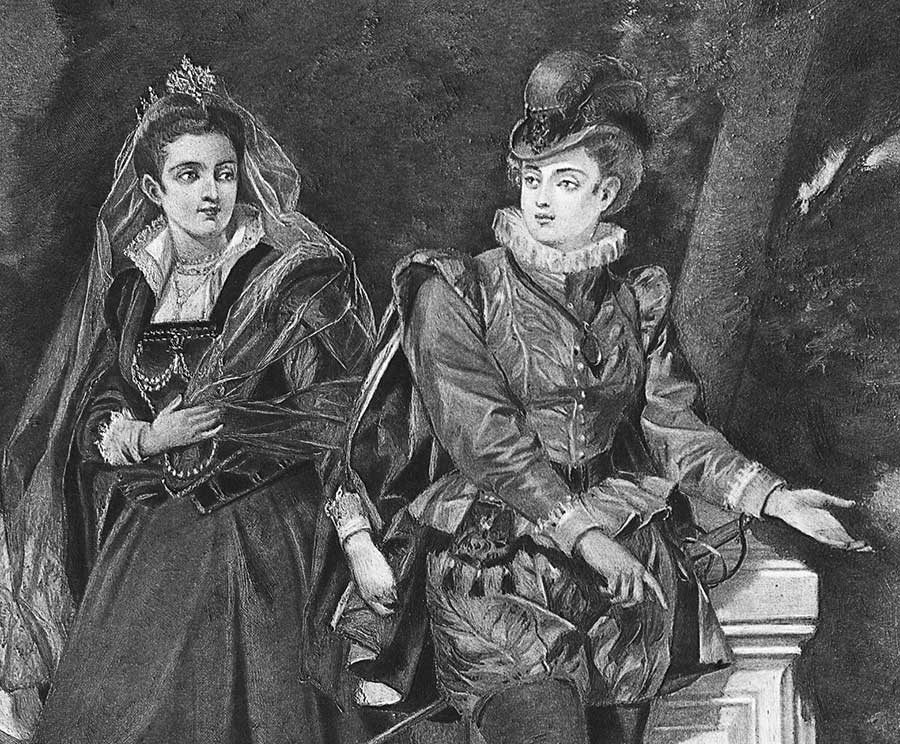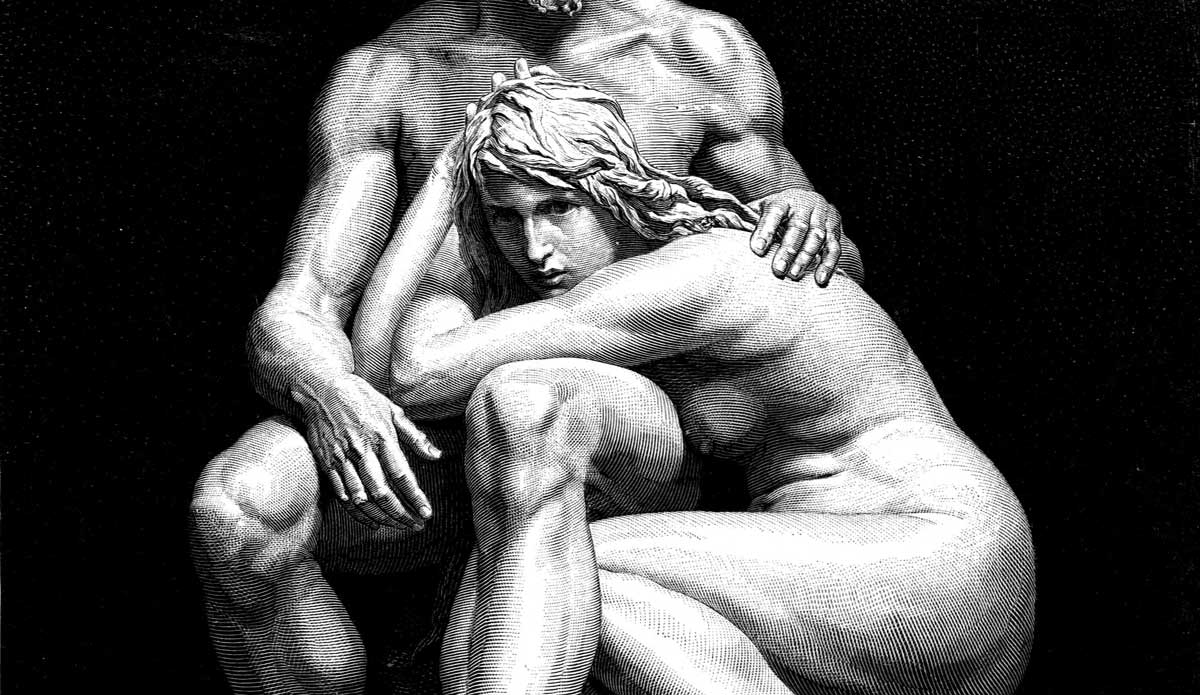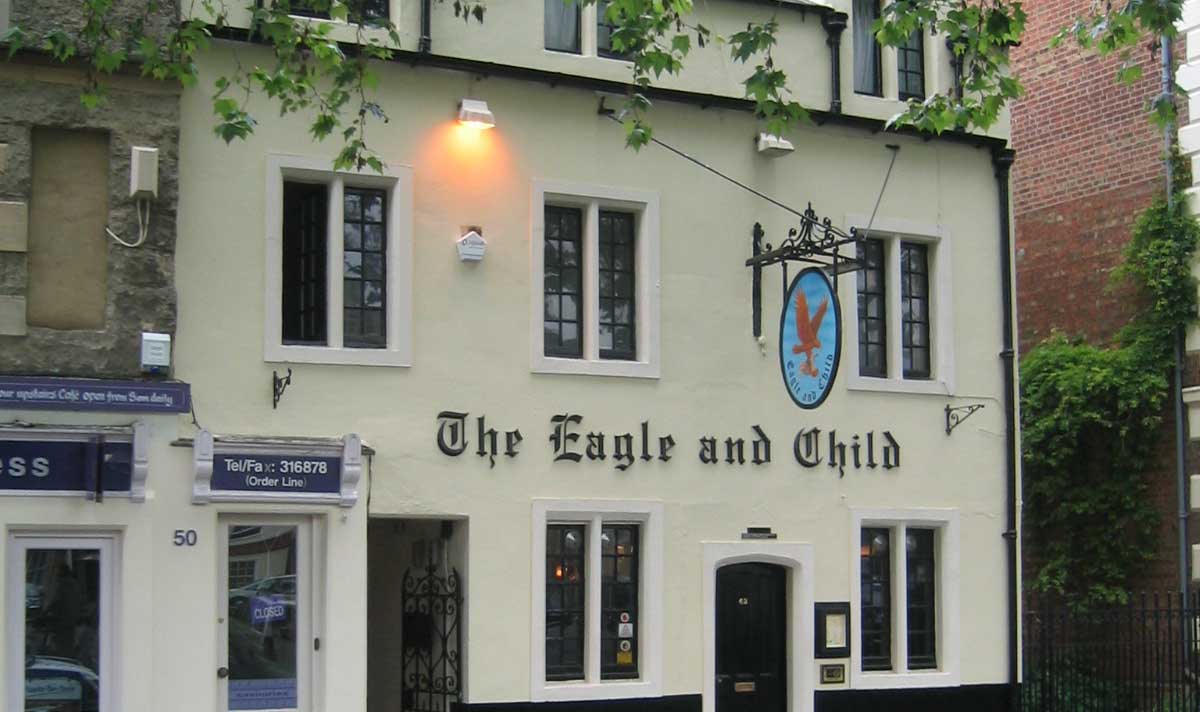Feature
The Fullness of Mercy
Western Literature & the Illumination of a Divine Attribute
by Christine Schintgen
The treatment of the theme of mercy in Western Literature confirms what Shakespeare wrote in The Merchant of Venice—namely, that "it blesseth him that gives and him that takes." In other words, mercy benefits not just the one on whom it is bestowed, but also—just as much, if not more—the one who bestows it. Mercy is the decision, on the part of a person who has the power to exact retribution or just payment from another, not to demand this payment or retribution. Properly understood, mercy does not conflict with justice; rather, it constitutes a deeperform of justice, one that recognizes that although the other has sinned against me, I have sinned many times as well. The fact that God has forgiven me prompts me to understand that everything I have has not been earned but freely given to me by God; and so, in justice to God, I should try to give to others and to forgive them as freely as God has given to me.
In what follows I would like to consider some notable situations involving mercy in Western literature and observe the movement from a suspicion of the value of mercy to a recognition of its benefits. For we find that in the literature of the ancient world, mercy is not particularly prized, but in that of the Christian world, it is valued greatly, both for what it can give to others, and for what it does for oneself—namely, keep one in right relationship with God.
THIS ARTICLE ONLY AVAILABLE TO SUBSCRIBERS.
FOR QUICK ACCESS:
subscription options
Order
Print/Online Subscription

Get six issues (one year) of Touchstone PLUS full online access including pdf downloads for only $39.95. That's only $3.34 per month!
Order
Online Only
Subscription

Get a one-year full-access subscription to the Touchstone online archives for only $19.95. That's only $1.66 per month!
bulk subscriptions
Order Touchstone subscriptions in bulk and save $10 per sub! Each subscription includes 6 issues of Touchstone plus full online access to touchstonemag.com—including archives, videos, and pdf downloads of recent issues for only $29.95 each! Great for churches or study groups.
Transactions will be processed on a secure server.
more on literature from the online archives
more from the online archives

27.6—Nov/Dec 2014
Tales of Forbidden Stereotypes
Real-Life Men & Women & the Tragic Loss of Human Comedy by Anthony Esolen
calling all readers
Please Donate
"There are magazines worth reading but few worth saving . . . Touchstone is just such a magazine."
—Alice von Hildebrand
"Here we do not concede one square millimeter of territory to falsehood, folly, contemporary sentimentality, or fashion. We speak the truth, and let God be our judge. . . . Touchstone is the one committedly Christian conservative journal."
—Anthony Esolen, Touchstone senior editor











